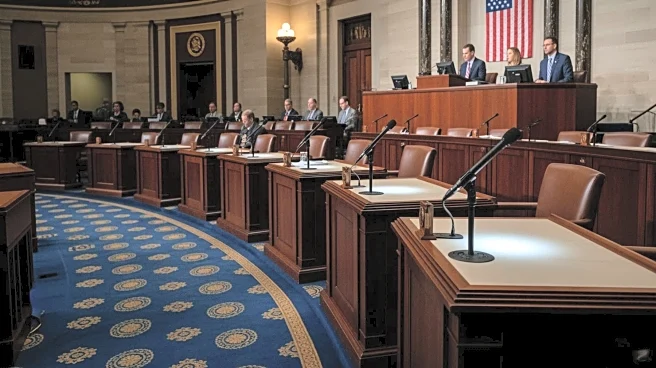What's Happening?
The U.S. Senate is set to vote for the ninth time on a House-passed stopgap bill intended to fund the government through November 21. This comes as the government shutdown enters its third week, with both
Republicans and Democrats holding firm on their demands. President Trump has threatened to cut more 'Democrat programs' and plans to release a list of priorities if the shutdown continues. The White House Office of Management and Budget is preparing for potential layoffs. Meanwhile, the Israeli military has reported that a body handed over by Hamas is not that of a hostage previously held in Gaza. Additionally, the Supreme Court is scheduled to hear arguments on a case challenging a key provision of the Voting Rights Act related to racial discrimination in redistricting.
Why It's Important?
The prolonged government shutdown has significant implications for federal employees, government services, and the broader U.S. economy. As political parties remain entrenched in their positions, the shutdown could lead to further economic instability and disruptions in public services. The potential layoffs and budget cuts could affect various government programs and services, impacting millions of Americans. The Supreme Court case on the Voting Rights Act is also crucial, as it could influence future redistricting efforts and the protection of minority voting rights.
What's Next?
If the Senate fails to pass the funding bill, the government shutdown will continue, potentially leading to more layoffs and disruptions in services. President Trump's list of priorities could further polarize the political landscape. The Supreme Court's decision on the Voting Rights Act case will be closely watched, as it could have lasting effects on electoral processes and minority representation.










